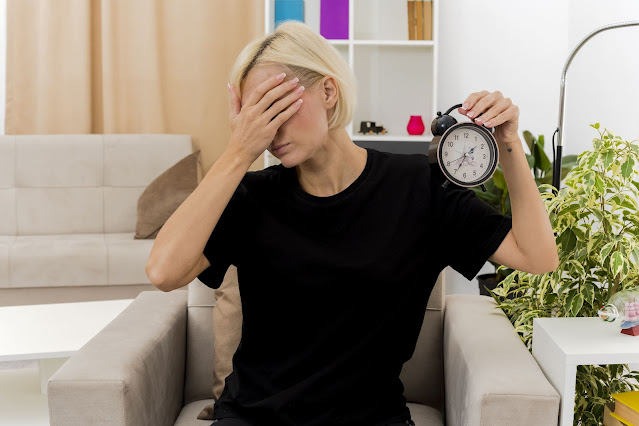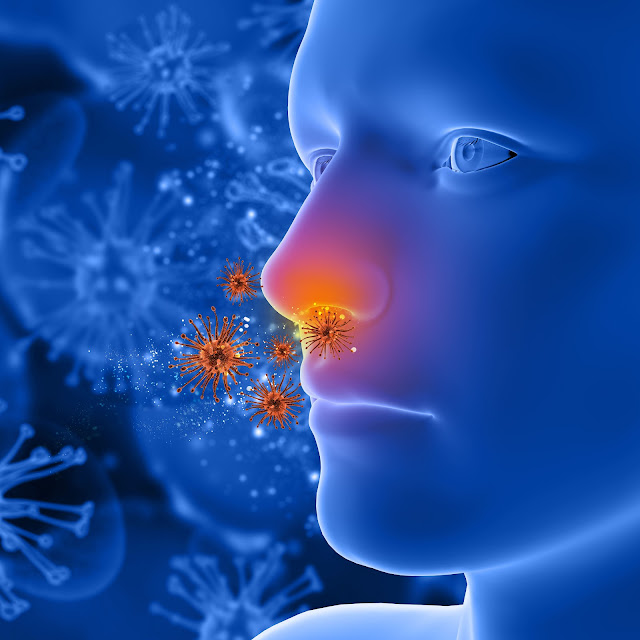Holistic Treatment for Menopause: Natural Ways to Find Balance and Relief
Holistic Treatment for Menopause: Natural Ways to Find Balance and Relief
 |
Image by stockking on Freepik |
Introduction
Menopause is a natural and significant phase in a woman's life. It marks the end of her reproductive years, accompanied by a variety of physical and emotional changes. While menopause is a natural process, the associated symptoms can be challenging to navigate. Many women seek holistic treatment options to alleviate symptoms and promote overall well-being during this transformative phase. In this article, we will explore various holistic approaches to address menopausal symptoms, incorporating natural remedies, lifestyle adjustments, and self-care practices.
Holistic Treatment for Menopause: Finding Balance and Relief
Understanding Menopause: A Transition to Embrace
Menopause is a normal part of a woman's life, typically occurring between the ages of 45 and 55. It is characterized by a decline in estrogen and progesterone levels, resulting in various physical and emotional changes. While menopause affects each woman differently, common symptoms include hot flashes, night sweats, mood swings, vaginal dryness, fatigue, and sleep disturbances.
Holistic Approaches to Alleviate Menopausal Symptoms
Mind-Body Techniques: Nurturing the Connection
Menopause can be emotionally challenging, and mind-body techniques offer valuable tools for finding balance. Practices such as meditation, deep breathing exercises, and yoga can help reduce stress, enhance relaxation, and promote emotional well-being.Nutrition: Nourishing Your Body
A balanced and nutrient-rich diet plays a crucial role in managing menopausal symptoms. Incorporating foods rich in phytoestrogens, such as soybeans, flaxseeds, and legumes, may help regulate hormone levels. Additionally, focusing on whole grains, fruits, vegetables, and lean proteins can provide essential nutrients and support overall health.Herbal Remedies: Harnessing Nature's Healing Power
Herbal remedies have long been used to alleviate menopausal symptoms. Certain herbs, such as black cohosh, dong quai, and evening primrose oil, are believed to have estrogen-like effects and can provide relief from hot flashes, mood swings, and sleep disturbances. However, it's important to consult with a healthcare professional before incorporating herbal supplements, as they may interact with medications or have contraindications.Exercise: Energizing Your Body
Regular physical activity is beneficial for women going through menopause. Engaging in exercises like brisk walking, swimming, or cycling not only improves cardiovascular health but also helps manage weight, reduce hot flashes, and enhance mood. Aim for at least 150 minutes of moderate-intensity aerobic activity per week, along with strength-training exercises twice a week.
Frequently Asked Questions (FAQs)
Can holistic treatments completely eliminate menopausal symptoms?
Holistic treatments aim to alleviate symptoms and promote well-being, but they may not completely eliminate all symptoms. Each woman's experience is unique, and it's important to find a personalized approach that works best for you.Are there any side effects associated with herbal remedies?
Herbal remedies can have side effects and may interact with certain medications. It's essential to consult with a healthcare professional before using herbal supplements to ensure they are safe for you.How long does menopause typically last?
Menopause itself is a single event, but its symptoms can last for several years. On average, menopausal symptoms persist for about four to five years, although some women mayLifestyle Adjustments: Promoting Well-being
Making certain lifestyle adjustments can have a positive impact on menopausal symptoms. Consider the following:
- Get enough sleep: Prioritize quality sleep by establishing a consistent bedtime routine, creating a sleep-friendly environment, and practicing relaxation techniques before bed.
- Manage stress: Find effective stress management techniques that work for you, such as engaging in hobbies, spending time in nature, practicing mindfulness, or seeking therapy.
- Stay hydrated: Drink plenty of water throughout the day to maintain optimal hydration, which can help reduce hot flashes and support overall health.
- Quit smoking: Smoking can exacerbate menopausal symptoms and increase the risk of certain health conditions. Quitting smoking can significantly improve your overall well-being.
- Limit alcohol and caffeine: Excessive consumption of alcohol and caffeine can trigger hot flashes and disrupt sleep. It's advisable to moderate your intake or avoid them altogether.
Self-Care Practices: Nurturing Yourself
Self-care is essential during the menopausal transition. Incorporate the following self-care practices into your routine:
- Prioritize relaxation: Engage in activities that help you unwind and relax, such as taking baths, practicing mindfulness or deep breathing, and indulging in hobbies or interests.
- Seek social support: Connect with loved ones, join support groups, or consider therapy to share your experiences and gain emotional support.
- Practice self-compassion: Be kind to yourself and acknowledge the significance of this phase in your life. Treat yourself with love, understanding, and acceptance.
- Engage in enjoyable physical activities: Find exercises or activities that bring you joy and make them a part of your routine. This could include dancing, gardening, hiking, or any form of movement that you enjoy.
- Explore alternative therapies: Consider acupuncture, massage therapy, or aromatherapy to complement your holistic treatment approach. These therapies can provide relaxation, pain relief, and overall well-being.
Conclusion
Navigating menopause with a holistic approach empowers women to find balance and relief during this transformative phase. By incorporating mind-body techniques, maintaining a balanced diet, exploring herbal remedies, engaging in regular exercise, making lifestyle adjustments, and practicing self-care, women can effectively manage menopausal symptoms and promote their overall well-being. Remember, each woman's experience is unique, so it's important to find a personalized approach that works best for you. Embrace this transition as an opportunity for self-discovery and growth, and seek support from healthcare professionals and loved ones when needed. Embracing holistic treatments can lead to a smoother menopausal journey and a renewed sense of vitality.

